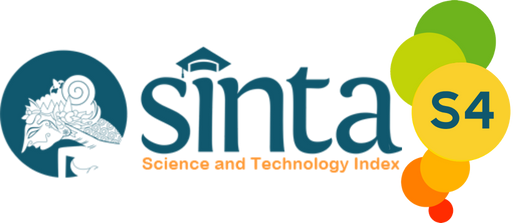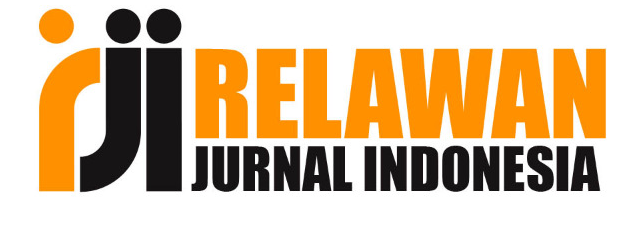EFEKTIVITAS PELAKSANAAN FUNGSI PENGAWASAN DI INSPEKTORAT DAERAH KABUPATEN KERINCI
DOI:
https://doi.org/10.32939/dhb.v2i2.943Keywords:
Effectiveness, Supervision, InspectorateAbstract
Purpose: Rulers or leaders need to carry out supervision, because without supervision will result in deviations. The implementation of supervision, both seen from inspection, testing to investigation, has not been running effectively, this is due to the lack of timeliness in conducting supervision, the inaccurate data on deviations found for the supervisory apparatus at the District Inspectorate office. Kerinci. Basically, supervision is not intended to find fault and impose sanctions or penalties, but supervision is intended to find out the real reality regarding the implementation of organizational activities.
Design/Methodology/Approach: This research was conducted with a qualitative approach. Data obtained directly from the object of research with data collection techniques, namely the interview method.
Findings: The implementation of supervision has not been effective, this is due to the inaccuracy of time in conducting supervision, the inaccuracy of the deviation data found for the supervisory apparatus. Factors influencing the implementation of the Inspectorate's supervision in Kerinci Regency include officers who do not yet have good skills, the data used are not objective and unrealistic, and the lack of knowledge in the field of work being handled, even though the available facilities and infrastructure have supported the implementation of supervision.
Research implications: Based on the research results that have been achieved, it is known that the implementation of supervision has not been fully effective, therefore the findings from this research become an input for the Kerinci Regency Inspectorate to improve the ability of employees in order to optimize reporting time.
Downloads
References
Fathoni Abdurrahmat, 2006, Organisasi dan Manajemen, cetakan pertama, Penerbit : Rineka Cipta, Jakarta
Gie,The Liang. Adminidtrasi Perkantoran Moderen. Radya Indra, Yogyakarta : 1980
Hasan, M Tolchah, dkk. 2002. Metodologi Penilitian Kualitatif ( Tinjauan Teoritis dan Praktis), penerbit : Lpunsima : Malang
Instruksi Presiden Republik Indonesia Nomor 15 Tahun 1983 Tentang Pedoman Pelaksanaan Pengawasa.
Kantour Ronie, Metode Penelitian, Jakarta, 2003.
Manullang, 2006, Dasar-Dasar Manajemen, edisi revisi, cetakan ketujuh, Penerbit : Ghalia Indonesia, Jakarta
Nasution Mustafa Edwin dan Hardius Usman, 2008, Proses Penelitian Kuantitatif, edisi ketiga, cetakan ketiga, Penerbit : Fakultas Ekonomi Universitas Indonesia
PP No. 20 tahun 2001 tentang Pembinaan Pengawasan atas Penyelenggaraan Pemerintah Daerah
Peraturan Pemerintahan Nomor 30 Tahun 1980 tentang Pengaturan Disiplin Pegawai Negri Sipil.
Rachman, Maman. 1999. Strategi dan Langkah-langkah Penelitian. Semarang: IKIP Semarang Press.
Reksohadiprodjo, Sukanto, 2008, Dasar-dasar Manajemen, edisi keenam, cetakan kelima, Penerbit : BPFE, Yogyakarta
Sule Erni Trisnawati, dan Kurniawan Saefullah, 2005, Pengantar Manajemen, edisi pertama, cetakan pertama, Penerbit : Prenada Media Jakarta
Sugiyono, 2008, Metode Penelitian Kuantitatif, Kualitatif dan R& D, cetakan keempat, Penerbit : Alfabeta, Bandung
Siswandi dan Indra Iman, 2009, Aplikasi Manajemen Perusahaan, edisi kedua, Penerbit : Mitra Wicana Media, Jakarta
Siagian P. Sondang, 2008, Pengantar Manajemen, edisi pertama, cetakan pertama, Penerbit : Bumi Aksara, Jakarta
Sarwoto, 2010, Dasar-Dasar Organisasi dan Manajemen, cetakan keenambelas, Penerbit : Ghalia Indonesia, Jakarta
Sudjiwo. 2001. Metodologi Penilitian Sosial. Bandung : Mandar Maju
UU No. 32 tahun 2004 tentang Pemerintahan Daerah
Terry, R, George dan Leslie W, Rue, 2010, Dasar-dasar Manajemen, edisi bahasa Indonesia, cetakan ketigabelas, Penerbit : Bumi Aksara, Jakart
Victor, M. Situmorang, dan Jusuf Juhir, 1994, Aspek Hukum Pengawasan Melekat, Rineka Cipta, Yogyakarta.













